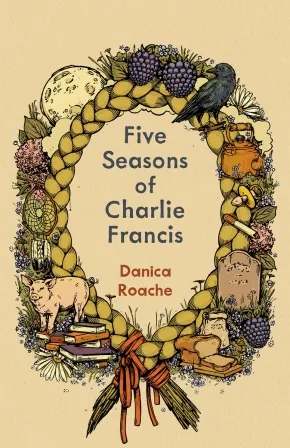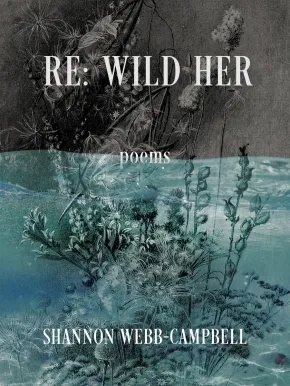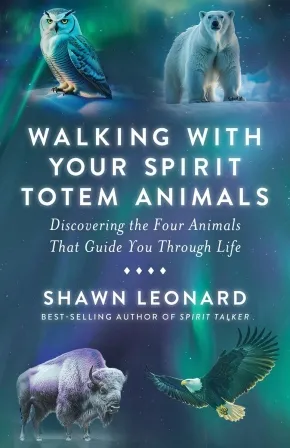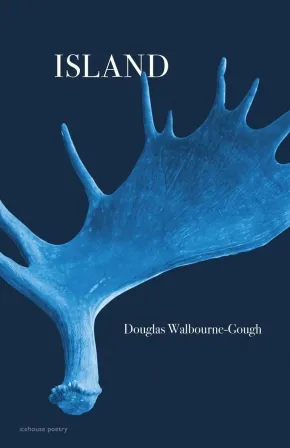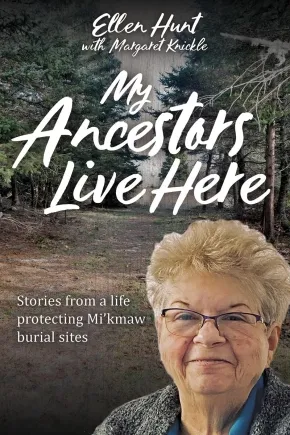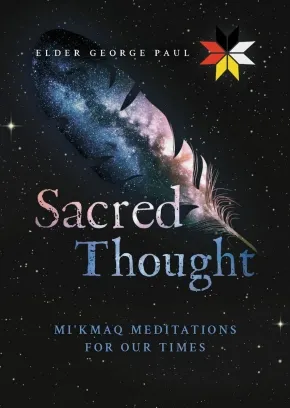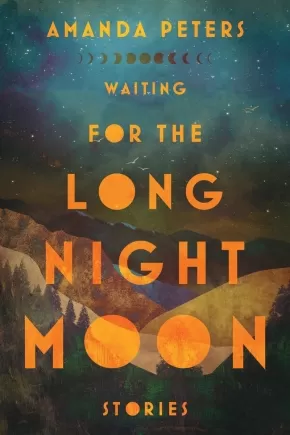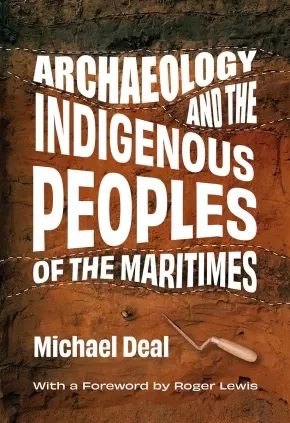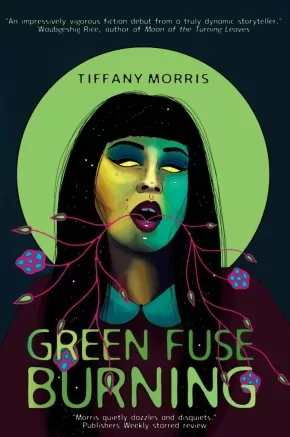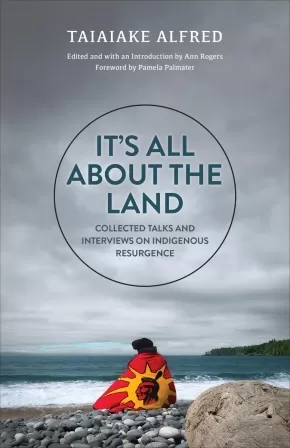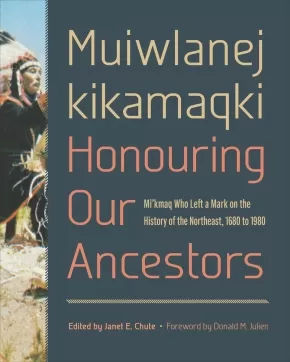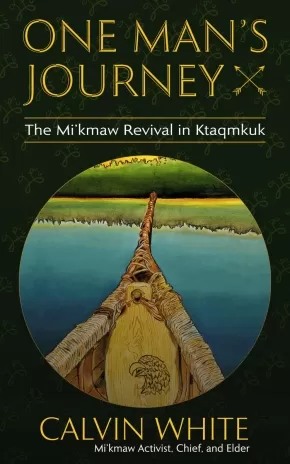
Mi'kmaq (Mi'gmaq)
1
-
15
of
58 Results;
Sort By
Go To
of 4
Five Seasons of Charlie Francis
$24.95
Format:
Paperback
Text Content Territories:
Indigenous Canadian; First Nations; Mi'kmaq (Mi'gmaq);
Reading Level: N/A
ISBN / Barcode: 9781774714645
Synopsis:
Synopsis:
A bold, refreshing, and darkly funny debut novel about a mixed-ancestry Mi'kmaw woman balancing academia, grief, love, and new motherhood, for fans of Fleabag and Amanda Peters.
When the tides in the Cobequid Bay went out and left stretches of mudflats, I could walk halfway to the other shore. Sometimes the mud engulfed my feet, right up to my ankles, and made it hard to move. The longer you stayed stuck, the harder it was to keep going.
Charlie Francis's five-year plan has gone to shit. She was supposed to greet the new millennium by diving head-first into a master's degree, but her thesis has ground to a halt, Y2K was a bust, her rambunctious family and claustrophobic hometown are driving her around the bend—and the maybe-love-of-her-life, Adam, keeps joking about her moving home to marry him and have his babies.
When Charlie's beloved uncle—the same person who told her to get out of town and never look back—dies suddenly, Charlie leans into her independence, breaking Adam's heart and rushing headlong into an academic career despite the baked-in racism of the predominantly white institution. When she unexpectedly becomes pregnant, she has to navigate being a (mostly) single mother on top of everything else.
Charlie finds herself at a crossroads—and only so much stress-baking can keep reality at bay. How can she reconcile being a student of history within the colonial system that exploited her ancestors? How can she be a good mother when she can barely afford groceries? And how can she be a proud Mi'kmaw woman when the world seems determined to keep her down?
Maybe it's time for a new five-year plan.
With grit, humour, a lovable cast, and the nostalgia of the early aughts, this bold and refreshing novel from a powerful new voice in Indigenous fiction explores grief, the complex bonds of family, and cultural identity.
Additional Information
320 pages | 5.50" x 8.50" | Paperback
Re: Wild Her
$22.95
Format:
Paperback
Text Content Territories:
Indigenous Canadian; First Nations; Mi'kmaq (Mi'gmaq);
Reading Level: N/A
ISBN / Barcode: 9781771669337
Synopsis:
Synopsis:
In nature, rewilding restores biodiversity and ecosystems. In this new collection from award-winning poet Shannon Webb-Campbell, it is a form of Indigenous resurgence and pleasure.
Drawing upon ecology, traditional knowledge, and sexuality, Re: Wild Her is a personal and poetic awakening. In these pages artistry and nature are intertwined, speaking to the sensual musings of lovers in Paris, driftwood and death cycles, and the rise of wild swimming and cold dipping. Throughout, reclaiming one’s divine femininity is celebrated as a powerful act of resistance and rejuvenation.
These “poem spells” each offer a different prism with which to rewild ourselves, answering the call: How does joy help us cope with the harsh realities and complexities of life? How does poetry help us move forward? Re: Wild Her is an invitation to catapult into the otherworldly, to dive with the muses, and to resubmerge ourselves in joy.
Reviews
“Shannon Webb-Campbell's nomad-like grazing on the treasures and pleasures of the world is sensuous, hungry, restless; the throat of this poet is wide open, expectant. In swallowing life and earth's marvels, she herself becomes them, and encourages the same of her reader.” —Shani Mootoo, author of Oh Witness Dey!
“These poems are wanderers, boldly straying across the globe (France, Cypress, Mexico, Cuba, California, Newfoundland) and in and out of the past, unafraid of 'strange creature sightings'—seeking them, in fact. They are poems hungry for magic and eager for transport, harkening to Elders and Buddhists, astrology and transatlantic flights, Two-Eyed Seeing and tarot. The transport sought isn’t the sort that offers escape from the world but one that pushes past the dominance of Enlightenment-style reason and opens a person up to mutuality and wonder.” —Sue Sinclair, author of Almost Beauty: New and Selected Poems
Additional Information
112 pages | 6.00" x 8.00" | Paperback
Walking with Your Spirit Totem Animals: Discovering the Four Animals That Guide You Through Life
$23.99
Format:
Paperback
Text Content Territories:
Indigenous Canadian; First Nations; Mi'kmaq (Mi'gmaq);
Reading Level: N/A
ISBN / Barcode: 9781401997250
Synopsis:
Synopsis:
From Shawn Leonard, Indigenous medium and host of Spirit Talker, comes a guide for assembling your unique team of spirit totem animal guides to be your personal guides through your life.
We are deeply connected to the animal nation, and through the four stages of life—Childhood, Youth, Adulthood, and Elderhood—there are four sacred animal totems that guide us energetically using their sacred medicine.
In Walking With Your Spirit Totem Animals, Mi’kmaq medium and host of Spirit Talker Shawn Leonard invites readers on a profound journey into the mystical world of animal totems. His insightful guide reveals how specific animal totems, that are personal to each and every one of us, support us. Leonard intertwines personal anecdotes with spiritual teachings, illustrating how these animal guides have appeared in his own life—his totems are Buffalo/Bison, Eagle, Polar Bear, and Owl—and provided wisdom at each stage.
The book includes comprehensive discussions on the Medicine Wheel and practical tools such as prayers and meditations to help readers connect with their own animal totems. Leonard also incorporates reflections on the connection between pets and their spiritual roles, messages revealed through animal dreams, and encounters with the animal nation in the astral realm.
Additional Information
208 Pages | 5.63 x 8.50" | b&w interior | Paperback
FLASH SALE! Mitji- Let's Eat!: Mi'kmaq Recipes from Sikniktuk
$21.94 $29.95
Artists:
Format:
Paperback
Text Content Territories:
Indigenous Canadian; First Nations; Mi'kmaq;
Reading Level: N/A
ISBN / Barcode: 9781774712276
Synopsis:
Synopsis:
An intergenerational source of wisdom and knowledge, Mitji combines a cultural history of Mi'kmaw cuisine with a practical cookbook.
The welcome call of "Mitji" can be heard by Mi'kmaw children, hungry workers, family, and friends when dinner is ready. This book, too, is an invitation to celebrate and practice Mi'kmaq foodways: the recipes passed down from one generation to the next; the way traditional foods and medicines are gathered, hunted, and cooked; and the lived experience of ancestors and Elders about how to nourish the spirit and body through Mi'kmaw culture and knowledge.
Mitji – Let's Eat! Mi'kmaq Recipes from Sikniktuk offers over 30 traditional and popular Mi'kmaq recipes, arranged seasonally — like Fish Cakes and Eel Stew in spring; Blueberry "Poor Man's Cake" and Stuffed Salmon in summer; Swiss Steak with Moose Meat and Apple Pie in fall; and Molasses Cake and Wiusey Petaqn in winter.
Each recipe is contextualized with its origins, contributor information, food stories, and detailed preparation instructions, and throughout the book are short essays on Mi'kmaw cuisine, drawing a picture of how Mi'kmaq foodways were influenced by colonization, on the one hand, and how food became and remains a significant vehicle of resistance, on the other. Whether a novice or well-seasoned cook, Mitji is a feast for the reader: a bountiful introduction to, and celebration of, Mi'kmaw cuisine.
Educator Information
Subjects & Curriculum Links: Indigenous Cooking, Seasons, Indigenous History, Mi'kmaw Culture and Cuisine
This book has received the Authentic Indigenous Text label because of the Indigenous contributions to this work. It is up to readers to determine if it's an authentic resource for their purposes.
Additional Information
240 pages | 7.50" x 9.25" | Photos by Patricia Bourque, 50+ Coloured Images
Island
$22.00
Format:
Paperback
Text Content Territories:
Indigenous Canadian; First Nations; Mi'kmaq (Mi'gmaq);
Reading Level: N/A
ISBN / Barcode: 9781773103396
Synopsis:
Synopsis:
“Canada rejected our applications for enrolment in the Qalipu First Nation. Initially, I was relieved by the rejection. I’d watched my hometown divide itself — are you Mi′kmaq or settler? Mi′kmaq or not Mi′kmaq enough?”
Centred around the Newfoundland Mi'kmaq experience in the wake of the controversial Qalipu First Nation enrolment process, Island wades through the fracture and mistrust that continues to linger in many communities. In this new collection, Douglas Walbourne-Gough expands upon issues of identity and history that he introduced in Crow Gulch, offering a deeply personal and equally beautiful exploration of Mi'kmaw and Newfoundland identity.
Walbourne-Gough’s narrative poems trace the formation of identity, not through status documentation, but through its deeper roots in childhood memories, family, spirituality, and dreams. Throughout this collection, he approaches life in fragments — snuggling into his nan’s sealskin snowsuit, learning Mi'kmaq from an app, or the myriad of complex emotions that come with receiving a status card — and watches them transform into pieces of an everlasting puzzle. Island reckons with an often-ignored, yet persistent, effect of colonialism — fractured identities.
Additional Information
80 pages | 5.50" x 8.50" | Paperback
My Ancestors Live Here: Stories from a Life Protecting Mi'kmaw Burial Sites
$24.95
Format:
Paperback
Text Content Territories:
Indigenous Canadian; First Nations; Mi'kmaq (Mi'gmaq); Qalipu First Nation;
Reading Level: N/A
ISBN / Barcode: 9781459507494
Synopsis:
Synopsis:
For over twenty years, Mi’kmaw Elder Ellen Hunt has been identifying, researching and fighting to protect Mi’kmaw burial sites in Nova Scotia which have long been forgotten, neglected and destroyed.
Moved by a powerful call from her ancestors, Ellen Hunt’s work has taken her to burial sites ranging from Nova Scotia’s South Shore to Cape Breton. This memoir chronicles her childhood growing up in a Mi’kmaw community in Newfoundland and her activist work through to the present day. Ellen also shares the many challenges she has faced – from indifferent politicians to antagonistic locals.
This memoir incorporates stories about the long Mi’kmaw history of the sites Ellen has identified and the teachings of her Mi’kmaw ancestors which have shaped her life and her work.
Additional Information
6.02" x 9.01" | 20+ colour and black and white images | Paperback
Sacred Thought: Mi'kmaq Meditations for our Times
$24.95
Format:
Paperback
Text Content Territories:
Indigenous Canadian; First Nations; Mi'kmaq (Mi'gmaq);
Reading Level: N/A
ISBN / Barcode: 9781998129256
Synopsis:
Synopsis:
In this philosophical exploration, Mi’kmaq Elder George Paul shares his traditional knowledge with those on a quest to better understand themselves and the world around them. Practiced and maintained by North American Indigenous tribes since time immemorial, this search for spirituality is informed by traditional knowledge, oral tradition and the use of symbols relating to our environment and to our universe. From the ceremonial to the sacred, George Paul meditates on the Indigenous legends, stories and designs of his ancient ancestors that offer new prospects to a modern population all across Turtle Island who are hungry to look inward.
With creation stories, buffalo sage and tapping into our spirit guides, Sacred Thought: Mi’kmaq Meditations for our Times is a book for those who are looking for balance and peace of mind in the chaos and confusion that govern the world today.
Reviews
“Elder George Paul, has dedicated more than four decades of his life to supporting the revitalization of our nation’s culture. In many ways, his tireless efforts have led a resurgence in our culture’s beautiful tapestry of language, spirit, and tradition — a colourful Mi'kmaw tapestry made all the more powerful when celebrated through the performance arts — and in particular, as we come together as a community to join in traditional song and dance.” - Julie Pellissier-Lush, Atlantic Books
"Elder George Paul has made significant contributions to safeguarding the cultural heritage of the Mi'kmaq. Through songs, stories and other artistic and intellectual expressions, he has worked tirelessly for decades to help our communities reclaim, revitalize and maintain traditional knowledge and practices passed down by our ancestors. This commitment shines in his latest book, Sacred Thought, which explores core aspects of our spirituality. The legacy of Elder Paul ensures that our distinct ways of knowing, being and doing will remain vibrant and relevant, and will continue to be deeply felt throughout Mi'kmaki and beyond." — The Honourable Brian Francis, Senator for Epekwitk (Prince Edward Island), Chair of the Standing Senate Committee on Indigenous Peoples and former Chief of Abegweit First Nation
"Elder George Paul, has dedicated more than four decades of his life to supporting the revitalization of our nation's culture. In many ways, his tireless efforts have led a resurgence in our culture's beautiful tapestry of language, spirit, and tradition - a colourful Mi'kmaw tapestry made all the more powerful when celebrated through the performance arts - and in particular, as we come together as a community to join in traditional song and dance." — Julie Pellissier-Lush, Atlantic Books
Additional Information
120 pages | 5.00" x 7.40" | Paperback
The Forgotten Frontier
$24.95
Artists:
Format:
Paperback
Text Content Territories:
Indigenous American; Native American; Apache;
Reading Level: N/A
ISBN / Barcode: 9781998779437
Synopsis:
Synopsis:
Ela Tahoe, a runaway turned deputy sheriff, is forced to contend with a Confederate invasion of her New Mexican town three months after the conclusion of the Civil War. Ela will need to confront her heritage and past with the Apache in order to get their aid to combat this Confederate threat, leading her to look at the world from the Native American perspective once again. Conceived as a tightly paced, gut wrenching western thriller, Ela fights tooth and nail to save the lives of her townspeople and most importantly, her son.
The American Western Frontier is arguably one of the most widely misrepresented histories, rife with inaccuracies and stereotypes. Black Mi'kmaq and Anishinaabe author Tristan Jones powerfully and critically reimagines and reclaims a historical retelling of the Frontier with a focus on the historically missing Indigenous narrative. Illustrated by master sequential artist Alexander Bumbulut, The Forgotten Frontier should be on everyone's reading list.
Additional Information
140 pages | 6.00" x 9.00" | Paperback
Waiting for the Long Night Moon: Stories
$24.99
Format:
Paperback
Text Content Territories:
Indigenous Canadian; First Nations; Mi'kmaq;
Reading Level: N/A
ISBN / Barcode: 9781443468220
Synopsis:
Synopsis:
In her debut collection of short fiction, Amanda Peters describes the Indigenous experience from an astonishingly wide spectrum in time and place—from contact with the first European settlers, to the forced removal of Indigenous children, to the present-day fight for the right to clean water.
In this intimate collection, Peters melds traditional storytelling with beautiful, spare prose to describe the dignity of the traditional way of life, the humiliations of systemic racism and the resilient power to endure. A young man returns from residential school only to realize he can no longer communicate with his own parents. A young woman finds purpose and healing on the front lines as a water protector. An old man remembers his life as he patiently waits for death. And a young girl nervously dances in her first Mawi’omi. The collection also includes the story “The Berry Pickers,” which inspired Peters’ critically acclaimed novel of the same name, as well as the Indigenous Voices Award–nominated story “Pejipug (Winter Arrives).”
At times sad, sometimes disturbing but always redemptive, the stories in Waiting for the Long Night Moon will remind you that where there is grief there is also joy, where there is trauma there is resilience and, most importantly, there is power.
Educator Information
Waiting for the Long Night Moon is a collection of short stories.
Additional Information
256 pages | 6.00" x 9.00" | Paperback
FLASH SALE! The Art of Mi'kmaw Basketry
$21.94 $29.95
Artists:
Format:
Paperback
Reading Level: N/A
ISBN / Barcode: 9781459507210
Synopsis:
Synopsis:
Mi’kmaw artists are creating a wide range of imaginative and beautiful work using the skills and traditions of basketry weaving given to them by their elders and ancestors. In this book, nine artists present their work and their stories in their own words. Their unique artistic practices reflect their relationships to the natural world around them and their abilities to create unique and beautiful objects using a mix of traditional and contemporary materials and forms.
Each artist's account of their background and practice is introduced by editor shalan joudry. Their words stand alongside examples of their art, photographed in their studios by Holly Brown Bear.
This book is a milestone in creating awareness of and celebrating a group of important contemporary artists working today in Mi’kma'ki, the traditional territory which embraces Nova Scotia, New Brunswick, Prince Edward Island and portions of Quebec.
Featured artists:
- Peter Clair, Elsipogtog First Nation, New Brunswick.
- Virick Francis, Eskasoni First Nation, Nova Scotia.
- Stephen Jerome, Gesgapegiag, Quebec.
- Della Maguire, Glooscap First Nation, Nova Scotia.
- Frank Meuse, L'sittkuk First Nation (Bear River), Nova Scotia.
- Margaret Peltier, We'koqma'q First Nation, Nova Scotia.
- Sandra Racine, Elsipogtog First Nation, New Brunswick.
- Nora Richard, Lennox Island, Prince Edward Island.
- Ashley Sanipass, Indian Island, New Brunswick.
Additional Information
10.00" x 8.03" | Paperback | 100+ Colour Photographs
Archaeology and the Indigenous Peoples of the Maritimes
$34.95
Format:
Paperback
Text Content Territories:
Indigenous Canadian; First Nations; Mi'kmaq;
Reading Level: N/A
ISBN / Barcode: 9781990445118
Synopsis:
Synopsis:
A retrospective look at the precontact period of the Maritimes, and how precontact cultures changed as they encountered neighbouring Indigenous peoples and European colonists.
In recent decades, the development of Indigenous Archaeology has prompted a shift in how non-Indigenous archaeologists approach the archaeological record, moving toward the inclusion of Indigenous reconstructions of precontact history communicated through oral tradition and traditional practices. Drawing mainly on research conducted since the late 1950s, this book surveys the historical perspective, theory, and methodology of maritime archaeology and offers insight on the lives of the Palaeo (Ancient), Archaic (Long Ago), and Woodland (Clay Pot) peoples. Looking to provide answers to where the earliest inhabitants of the Maritimes came from, what the area was like when they were there, and how they developed their technology and expanded their populations, Archaeology and the Indigenous Peoples of the Maritimes provides a retrospective look at the precontact period and how precontact cultures changed as they encountered neighbouring Indigenous peoples and finally European colonists.
Reviews
"Studies of Indigenous knowledge are challenging not only because of difficulties in cross-cultural communication and understanding but also because of their inevitable political dimensions…This publication serves to help narrow those gaps for future young Mi’kmaw scholars and academics. It also forms a valuable addition to the existing body of knowledge and will serve as a great resource to both Mi’kmaw and non-Mi’kmaw readers in the Atlantic Region." - Roger Lewis, Foreword
Additional Information
6.00" x 9.00" | Paperback
Green Fuse Burning
$19.99
Format:
Paperback
Text Content Territories:
Indigenous Canadian; First Nations; Mi'kmaq;
Reading Level: N/A
ISBN / Barcode: 9781778092664
Synopsis:
Synopsis:
After the death of her estranged father, artist Rita struggles with grief and regret. There was so much she wanted to ask him – about his childhood, their family, and the Mi'kmaq language and culture from which Rita feels disconnected. But when Rita's girlfriend Molly forges an artist's residency application on her behalf, winning Rita a week to paint at an isolated cabin, Rita is both furious and intrigued. The residency is located where her father grew up.
On the first night at the cabin, Rita wakes to strange sounds. Was that a body being dragged through the woods? When she questions the locals about the cabin's history, they are suspicious and unhelpful. Ignoring her unease, Rita gives in to dark visions that emanate from the forest's lake and the surrounding swamp. She feels its pull, channelling that energy into art like she's never painted before. But the uncanny visions become more insistent, more intrusive, and Rita discovers that in the swamp's decay the end of one life is sometimes the beginning of another.
Reviews
"Green Fuse Burning is an impressively vigorous fiction debut from a truly dynamic storyteller. Tiffany Morris has laid out a concise and creepy tale that mesmerizes as it weaves through several realms, from the tangible to the spiritual. I was captivated by the looming mystery and the striking imagery that carried me like a current to the story's monumental resolution. This book is a must-read in new speculative fiction!" - Waubgeshig Rice, author of Moon of the Turning Leaves
"Morris quietly dazzles and disquiets in this weird horror novella . . . Poetic and grotesque imagery drives the novella's horror, with fluid narration fostering a sense of disconnect and dread . . . This is a subtle and refreshing twist on the cabin in the woods trope." - Publishers Weekly starred review
"A verdant alienation seeps through every page as Morris reimagines the possibilities of decay, a desperate isolation scouring the mind to reveal a torrid, seething strangeness beneath, the inevitable reckoning gathering its strength below the calm surface of the pond." - Andrew F. Sullivan, author of The Marigold and The Handyman Method
Additional Information
112 pages | 6.12" x 9.03" | Paperback
It's All about the Land: Collected Talks and Interviews on Indigenous Resurgence
$29.95
Editors:
Format:
Paperback
Text Content Territories:
Indigenous Canadian; First Nations; Haudenosaunee (Iroquois); Kanyen'keha:ka (Mohawk); Indigenous;
Reading Level: N/A
ISBN / Barcode: 9781487552831
Synopsis:
Synopsis:
Illuminating the First Nations struggles against the Canadian state, It’s All about the Land exposes how racism underpins and shapes Indigenous-settler relationships. Renowned Kahnawà:ke Mohawk activist and scholar Taiaiake Alfred explains how the Canadian government’s reconciliation agenda is a new form of colonization that is also guaranteed to fail.
Bringing together Alfred’s speeches and interviews from over the past two decades, the book shows that Indigenous peoples across the world face a stark choice: reconnect with their authentic cultures and values or continue following a slow road to annihilation. Alfred proposes a radical vision for contesting and confronting the ongoing genocide of the original peoples of this land: Indigenous Resurgence. This way of thinking, being, and practising represents an authentic politics that roots resistance in the spirit, knowledge, and laws of the ancestors.
Set against the historic arc of Indigenous-settler relations in Canada and drawing on the rich heritage of First Nations resistance movements, It’s All about the Land traces the evolution of Indigenous struggle and liberation through the dynamic processes of oratory, dialogue, action, and reflection.
Reviews
"It is Taiaiake’s call to face the uncomfortable truths of colonization and the impacts it has had on our Nations, families, and individuals that makes his work stand out. As his work is such a challenge to the current unjust status quo, it has been both embraced and rejected. This is a clear sign that he is on to something" — Pam Palmater, from the Foreword
“It’s All About the Land is a long-awaited, vital contribution and is an essential reading for anyone who wants to understand the injustices Native people live under and what we should be doing about it.” — Grand Chief Kahsennenhawe Sky-Deer, Mohawk Council of Kahnawà:ke
“Taiaiake Alfred is a thought shifter who builds fires with his words. Anyone who cares about Indigenous issues and craves to be jolted into action should read this book -- a real counter narrative to the status quo.” — Chelsey Luger, Lakota and Anishinaabe, author of The Seven Circles: Indigenous Teachings for Living Well
“It’s All About the Land takes mainstream assumptions about reconciliation as seen and processed through a colonial filter and turns them on their head. Insightful, informative, and deeply thoughtful, this book will have you thinking differently about decolonization and what reconciliation really stands for. Ultimately, it asks all of us to do and be more.” — Toula Drimonis, writer, columnist, and author of We, the Others: Allophones, Immigrants, and Belonging in Canada
“Some may be surprised, given my position and our respective philosophical world views, that I count Taiaiake as a friend, but his work forces me to scrutinize and constantly question my actions and those of my government so as not to reproduce the horrific social experiment that has devastated Indigenous peoples.” — The Honourable Marc Miller, Minister of Crown-Indigenous Relations
Educator Information
This book challenges conventional thinking about reconciliation. Renowned Kahnawà:ke Mohawk activist and scholar Taiaiake Alfred argues that reconciliation is another form of colonization and instead proposes Indigenous Resurgence as a radical vision for contesting and confronting the continuing genocide of the Original Peoples.
Contents
Foreword: The Battle to Decolonize Ourselves Inside and Out
Pamela Palmater
Introduction
Ann Rogers
Wasáse Redux
June 2005, TV Ontario
From Noble Savage to Righteous Warrior
March 6, 2010, Vancouver, BC
The Psychic Landscape of Contemporary Colonialism
November 9, 2011, Ottawa
Practical Decolonization
April 9, 2012, Kingston, ON
Warrior Scholarship
March 18, 2013, Victoria, BC
Constitutional Recognition and Colonial Doublespeak
November 27, 2013, Melbourne, Australia
On Being and Becoming Indigenous
November 28, 2013, Melbourne, Australia
Reconciliation as Recolonization
September 20, 2016, Montreal, QC
From Red Power to Resurgence
November 2, 2018, Vancouver, BC
Rebuilding the Fire: In Conversation with Pamela Palmater
July 5, 2019, Warrior Life Podcast
Ronón:kwe
January 19, 2021, The Mythic Masculine Podcast
Rooted Responsibility
March 2021, Victoria, BC
You Can’t Decolonize Colonization
September 16, 2022, The Decolonized Buffalo Podcast
Afterword: Wa'tkwanonhwerá:ton
Taiaiake Alfred
Bonus Track: The Four Intuitions
April 20, 2003, TV Ontario
A Note on the Sources
Index
Additional Information
304 pages | 5.50" x 8.50" | 11 b&w illustrations | Paperback
Muiwlanej kikamaqki - Honouring Our Ancestors: Mi'kmaq Who Left a Mark on the History of the Northeast, 1680 to 1980
$150.00
Editors:
Format:
Hardcover
Text Content Territories:
Indigenous Canadian; First Nations; Mi'kmaq;
Reading Level: N/A
ISBN / Barcode: 9781487546137
Synopsis:
Synopsis:
Drawing upon oral and documentary evidence, this volume explores the lives of noteworthy Mi’kmaw individuals whose thoughts, actions, and aspirations impacted the history of the Northeast but whose activities were too often relegated to the shadows of history.
The book highlights Mi’kmaw leaders who played major roles in guiding the history of the region between 1680 and 1980. It sheds light on their community and emigration policies, organizational and negotiating skills, diplomatic endeavours, and stewardship of land and resources. Contributors to the volume range from seasoned scholars with years of research in the field to Mi’kmaw students whose interest in their history will prove inspirational. Offering important new insights, the book re-centres Indigenous nationhood to alter the way we understand the field itself. The book also provides a lengthy index so that information may be retrieved and used in future research.
Muiwlanej kikamaqki – Honouring Our Ancestors will engage the interest of Indigenous and non-Indigenous readers alike, engender pride in Mi’kmaw leadership legacies, and encourage Mi’kmaw youth and others to probe more deeply into the history of the Northeast.
Reviews
"This book is an invaluable and original offering. Muiwlanej kikamaqki – Honouring Our Ancestors makes a significant contribution to Mi’kmaq history by successfully bringing little-known individuals into the light and by placing them in a historical context that is uniquely informed by both written and oral narratives. For Mi’kmaq wanting to know more about their history, this book will be a wonderful source." - Natasha Simon, Nihkanatpat (Director) of the Mi’kmaq-Wolastoqey Centre, University of New Brunswick
"This book is deeply researched, both in written sources and in integrating the invaluable evidence of Indigenous knowledge. The detailed individual and family histories are uniquely effective in bringing out both changes and continuities in Mi’kmaw history and in the texture of Mi’kmaw interactions with non-Indigenous sojourners and settlers. With a remarkable and outstanding depth of scholarship, the book meticulously pursues biography as an approach that can be extended to people whose lives have too often been deemed to be insufficiently documented for conventional purposes, in order to take our historical understanding in innovative and productive directions."- John Reid, Professor of History, Saint Mary’s University
Additional Information
1004 pages | 8.00" x 10.00"| 62 b&w illustrations | Hardcover
One Man's Journey: The Mi'kmaw Revival in Ktaqmkuk
$26.95
Format:
Paperback
Text Content Territories:
Indigenous Canadian; First Nations; Mi'kmaq;
Reading Level: N/A
ISBN / Barcode: 9781990445088
Synopsis:
Synopsis:
With a story spanning over seventy years of the life of respected Elder Calvin White, One Man’s Journey weaves personal history with White’s account of the Mi’kmaw movement and his role in the reclamation and restoration of pride in Mi’kmaw culture in Newfoundland.
Elder White’s journey began in the forests surrounding his home of Flat Bay, where he learned to fish, hunt, and gather from a group of respected mentors who influenced and inspired him. His story recounts how the lessons learned from these valuable moments fueled his later work to spearhead the Mi’kmaw movement throughout the island of Newfoundland, amid the fight for recognition by the provincial and federal governments. His words do not shy away from the prejudice and discrimination faced by his people, and they provide a personal account of the history, responsibilities, philosophy, and worldview of his community.
One Man’s Journey is a personal and critical look at the processes that have led to the recognition of Mi’kmaw people in Newfoundland. The book shares knowledge and history with a new generation so they can continue the movement to which Elder White has been so instrumental.
Additional Information
194 pages | 6.00" x 9.00" | Paperback
Sort By
Go To
of 4

